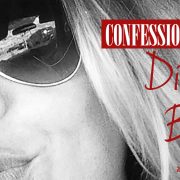Confessions of a Dirty Blonde :: Pint-sized words can go
Most writers focus on clarity with their nouns and verbs, but allow the rest of their sentences to clutter their work. The details become big problems, and using multiple words when one, clear word would work confuses readers. As you’re editing, be sure to look for pint-sized words causing gallons of problems.
Streamlining your words isn’t difficult, if you know where to look. Common phrases we use in conversation use more words than necessary are bloated, but we keep them because they’re comfortable. We need to clear it up. All of it.
If you don’t, the reader spends more time navigating than hearing your message. Be clear, concise and confident: qualities magnetic to them.
So where can you find these orgies in your writing? Prepositions and prepositional phrases.
Prepositions identify relationships between words. They detail space (over, through, under, between, above, across, by, on), and time (until, before, since, during, after). Prepositional phrases use more words to indicate where or when something happens.
Let’s play.
Example: We walked in the direction of the sun, covering our eyes from the blinding rays.
Problem: The sentence stands, but it could be clearer. The prepositional phrase “in the direction of” could be removed and rewritten with fewer words.
Solution: We walked in the direction of toward the sun, covering our eyes from the blinding rays.
I replaced five words with one and the message is intact, easier for the reader to find.
Example: I heard children laughing, their guts exploding with joy, on the other side of the street.
Where’s the prepositional phrase? “on the other side of”
Better modification: Across.
“I heard children laughing, their guts exploding with joy, across the street.
While it might seem a tiny problem now, imagine this on a larger scale: a complex sentence detailing setting. Or an entire book without editing prepositions for clarity. Riddled with words that don’t tell your story.
Google a list of prepositions, print it out and leave it by your desk. When you begin editing, you’ll have easy access to substitutable words for unnecessary phrases.
The best part of editing your own work before submitting to an editor is these easy fixes won’t be where they’re looking. More bang for your buck, and – let’s be honest – that’s what we all want, isn’t it?
***
Got writing questions for Capo? Email capo@rebeccatdickson.com. Confessions of a Dirty Blonde goes out every Thursday.




Hey Capo, I love this lesson. So timely for me right now. Thanks for your life force. That’s not so pint-sized. And thanks for using substitutable. Love Love. xxoo